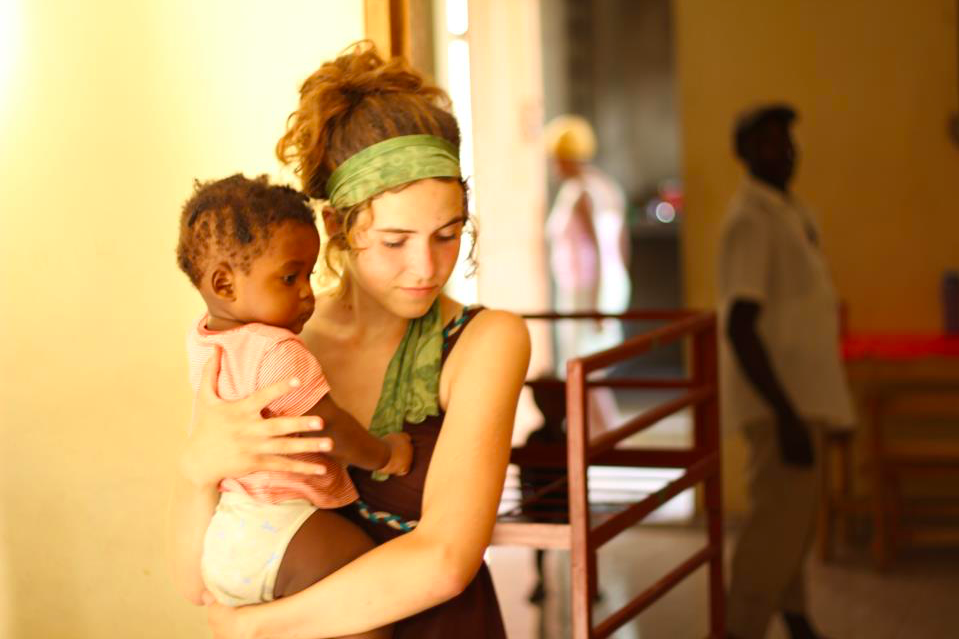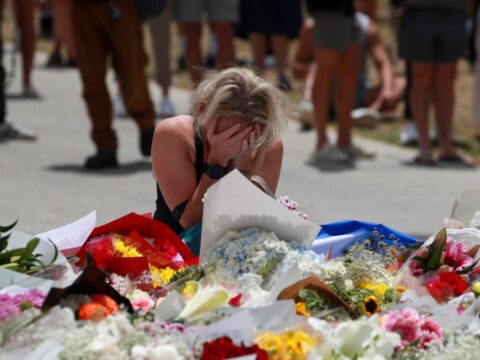Unlike many young adults who anticipate the fun of college or university, Morgan Wienberg decided to spend 10 weeks in Haiti following her high school graduation. The Whitehorse teen planned to help with humanitarian aid after the 2010 earthquake nearly demolished the country. She never left.
Now 25, Wienberg pursues her passion with Little Footprints Big Steps, a non-profit, child-protection organization she co-founded. She has even received the Governor General’s Meritorious Service Cross for her work.
You may unsubscribe from any of our newsletters at any time.
The UC Observer recently spoke with Wienberg about her organization – and the U.S. President’s recent remarks about the country she loves.
Q What motivated you to go to Haiti in 2010 and why did you stay?
A When I saw the media reporting the earthquake’s devastation, I wanted to connect with the victims instead of sending money. I had long been a volunteer in the Yukon for various organizations, like the Humane Society and the Anti-Poverty Coalition. When I arrived in Haiti and began working in an orphanage, I witnessed some of the worst conditions I’d even seen. I realized I couldn’t go home and pretend I hadn’t seen what I had. I felt drawn to help children living in harsh circumstances.
Q What are the goals of “Little Footprints Big Steps”?
A Our primary goal in Haiti is family reunification and the prevention of child abandonment or relinquishment. Many parents, especially in rural areas outside of major cities, are misled to believe that surrendering their children to private orphanages will give them better food, shelter, clothing and education. Unfortunately, money donated to some orphanages doesn’t always go to caring for children living in them. We are working towards building local community support systems and financially supporting these social services over private orphanages, so that families can stay together or be reunified with sustainability.
Q What are some of the biggest challenges you’ve faced?
A Sadly, Mother Nature doesn’t give Haiti a break from natural disasters. Funding of our work is also an ongoing challenge. We have some great non-profit partners, but we receive no financial support from any governments. In the province I live and work, there are only seven social workers responsible for monitoring and closing bad orphanages, or supporting children and their families through abuse, slavery, abandonment and neglect.
Another obstacle is changing the global and Haitian mentality to understand how badly children need to grow up in their own families. The absence of the right to protection, identity and family damages children as much as lack of food, water and shelter. When kids turn 18, they must leave orphanages and are left on their own to transition into an independent life with no support systems. Some are put out with nothing at all, not even enough money to get back to their families.
Q What is one of the hardest things you’ve experienced in Haiti?
A [Editor’s note: Trigger warning for graphic description of childhood sexual assault.] One of my hardest days came when an eight-year-old girl had been raped and needed to be taken to our safe house. She was so frail and tiny. She looked more like a five-year-old.
I had to pause in the corridor where nobody could see me and take a moment. I remember thinking, “How could something like that happen?” This girl had been a house slave. She wouldn’t speak. This little child was being abused, not properly fed and not allowed to attend school.
When she was later brought back home, her mother had no idea of the abuse her daughter had endured. She had agreed for her daughter to leave home with “recruiters” who had tricked her into thinking her child would be better cared for and could attend school in exchange for housework, an arrangement known in Haiti as restavek (Creole for “stay with”). This affects tens if not hundreds of thousands of children in Haiti.
Q Is there an element of spiritual faith involved in what you do?
A I was raised Christian, but not religious. I went through a period of atheism as a teen. I struggled my first year in Haiti with the strong Christian faith there being abused. Fake pastors started orphanages to make money and some orphanage owners used God and religion to control kids with threats like: “God doesn’t love children who don’t work hard.” I’ve seen Haitian people find strength from their faith, so I now believe in God and also feel that strength. Some things I’ve seen happen can’t be explained any other way. I go to church to enjoy the strong sense of community and because I feel more positive and hopeful afterward.
Q Do you believe in miracles?
A Definitely. I think having hope, being positive and not giving up are a big part of miracles. My favourite story is of a 12-year-old boy living on the streets for three years after his mom died. He had a facial tumour and had never been to school. Everyone thought he was mentally ill because he only made animalistic noises and gestures without fully speaking. He came into our safe house but had no trust for anyone. He went to school and eventually became the top student in his class. He is now a young man who has endured two five-month trips to Miami to have his facial tumour removed. He attends class in the mornings and works afternoons at a mechanical apprenticeship, sharing his earnings with his father. Nobody believed this boy would survive, let alone accomplish what he has. These are the miracles I see in my work.
Q What are your thoughts on Trump’s disparaging remarks about Haiti?
A At first, I just passed it off as more of his crap not to be taken seriously, then I felt bothered. I didn’t want Haitians impacted in their view of their country. I’m happy to see Haitians responding with pride. They’ve been defending Haiti’s beauty, which isn’t often in the media. Haiti has incredible culture, geography, artwork, natural resources and beautiful beaches. Anderson Cooper was right: Trump should know about the resiliency of Haiti’s people. They’ve been through so much and keep picking themselves up again and again. I have a tattoo of some Creole words, which in English translate to: “Haiti has strength.”
Interview edited and condensed for clarity.













